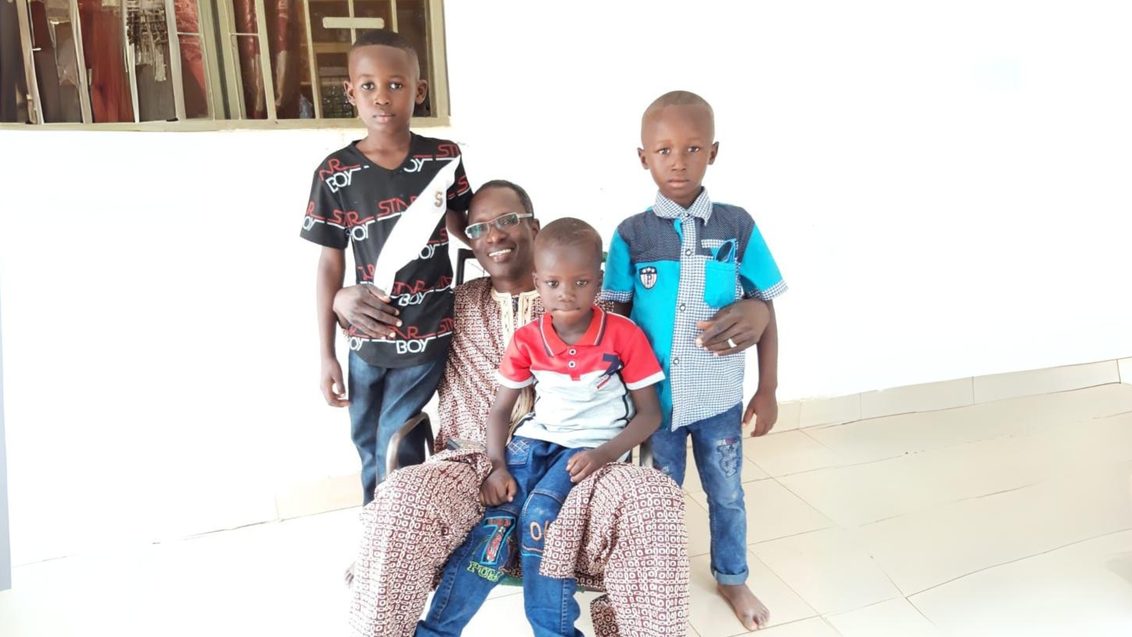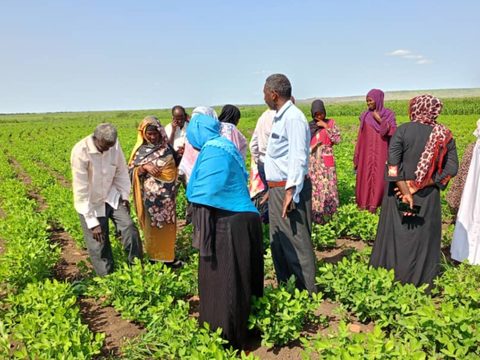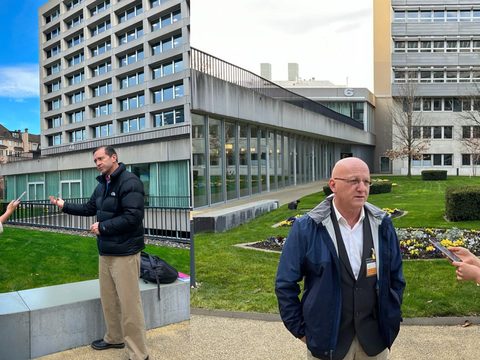A life dedicated to his country and its farmers

Salif Kante retires as our Country Director in Mali
“I have always made the choice to stay and serve my country”. This strong conviction has accompanied Salif Kanté throughout his life, including as our Country Director. Passion and perseverance have guided him throughout his professional career of 33 years. Starting at the Institute of Rural Economy (IER) of Mali as a researcher, Salif then moved to our Foundation as as a project coordinator and then Country Director. He retires at the end of January.
Originally from Toukoto, a prosperous trading village near Kita, no predetermined path led Salif to embrace a career as an agronomy researcher. “In my last years of high-school, I thought I would study medicine. During my holidays in Senegal, an uncle had an accident. During his stay in hospital, I saw the tireless and demanding work that people expect of doctors. I asked myself: Would I be a brilliant and patient doctor? I have often reflected on the answer! I changed my mind and chose agronomy, especially as I was the beneficiary of a scholarship to Russia.” A distinguished student, Salif obtained a diploma in agro-chemistry and soil science after five years at Moscow’s Timiryazev Agricultural Academy. The harsh climate and linguistic barriers never eroded his determination, motivation or pursuit of excellence.
Returning to Mali, Salif thought he should first set up his own business. “As the son of a trader, I wanted to pursue agricultural business. I acquired some agricultural equipment, including motor pumps, incubators, etc. With limited experience and no real guidance, I was quickly confronted with the realities on the ground, including the difficulty of accessing land.” Undeterred, Salif began trading in cereals, hides, skins, and clothing at weekly fairs in Mali and Senegal to support himself, whilst simultaneously looking for employment.
When the IER offered me a short internship there in 1990, I joined the world of research without hesitation. Before the four months were up, the manager of my project recommended that I finalize our report – a big responsibility for a trainee! That led to my first real scientific publication, on ‘the importance of shading by Parkia biglobosa and Vitellaria paradoxa for cotton, millet and maize’. (Those are the two trees we know locally as néré and karité). At the end of my internship, I turned down a Russian PhD scholarship, and instead gladly accepted a job offer from IER. I started my 15 years there as an agronomist and later became head of the agronomy department.
I thoroughly enjoyed my work, especially as I was fortunate to be working with such a young, dynamic, and diverse team of Malians and Dutch. I specialized in the management of soil fertility, and over five years built up a rich and carefully structured database.
Thanks to this remarkable work, in 1999 Salif won a PhD scholarship to the renowned University of Wageningen in the Netherlands. After completing his studies there in 2001, he returned to his country and the IER. As Salif said then and repeats today: “I can acquire knowledge and develop skills abroad, but at the end of the day I want to work for my country.”
In 2006, Salif joined our Foundation as coordinator of the Capacity-Building for Sustainable Agriculture Project (PRECAD). In 2013, he became regional agronomist for a rice program across Burkina Faso, Côte d’Ivoire, Ghana, Mali and Senegal. “I led the training of staff, partners and producers on good agricultural practices, and with our partners developed technical protocols from production to processing,” he recalls. In 2018 Salif was appointed to lead our team based in Bamako.
I don’t feel my 18 years at the Foundation as a weight on my shoulders. I’ve loved all the contact with farmers and other partners. On the ground, I’m like one of the farmers. I love walking between the rice fields, for example, including all the stumbling and slipping around.
Now a grandfather, and surrounded by his grandchildren, a new phase of life is starting. But Salif intends to stay in close touch with agriculture and continue to share his passion for farming. He also looks forward to visitors from Mali and abroad trying some of his favorite dishes…
Five questions to Salif Kante
Looking back over your 33 years in Malian agriculture, what have been some positive changes?
Yields and harvests of rice, maize, cotton, and sorghum have all increased, for example. Research and development have produced good new varieties. Farmers have also got much better organized in cooperatives, unions, and professional associations. Through subsidies, the state has also helped smallholders get better access to modern farm inputs.
What are the biggest challenges Malian farming still needs to tackle?
Food insecurity remains one of our biggest challenges. Agricultural production has increased, but the population has grown faster. We must ensure that everybody has enough to eat. The country’s stability depends on it. We need to invest more in processing agricultural products to create jobs and reduce youth unemployment. We also need greater political commitment to make agriculture a vector of growth and development.
Which of our Foundation’s achievements are you most proud of?
When I joined in 2006, leading the PRECAD project meant doing lots of different jobs. I was a trainer, presenter, accountant, and chauffeur. We teamed up with government extension officers and organized 99 villages into training clusters. I helped young men and women there to disseminate new technologies to farmers. After six months, a survey suggested that the project was rather too dependent on me! So we recruited specialists in agronomy and microfinance and created a successful team. I’m very proud of what we achieved in six years. When we started, there were no local cooperatives at all. We established 12 for cereals, 11 for sesame, six in the dairy sector, and two each for seeds and nurseries. We also set up three cooperative unions. We built warehouses and vaccination centers. 3000 women benefited from training, literacy programs and access to credit. They manage the village credit funds. Years afterwards, this project’s impacts are still visible.
As a manager, what is your advice on leading teams?
Listen to people, accept their differences, keep patient, show a good example, and treat the whole team with the utmost respect.
As a grandfather, what do you most look forward to in your retirement?
I want to go back to my dream of 33 years ago, which is to set up my own business. I am going to devote myself to farming, growing citrus fruits and vegetables, rearing small ruminants and poultry. I am also going to devote myself to my grandchildren and continue to advise young people.


